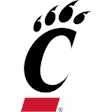Something approaching normalcy seems imminent for organized sports at both the high school and collegiate levels, particularly as we look ahead to the start of the academic year in fall.
But even as optimism reigns, there is still much to learn about the lingering impact of the COVID-19 pandemic. Scientists and athletics stakeholders alike are most concerned about the risk of heart muscle inflammation in student-athletes who contracted COVID — a condition known as myocarditis.
In the largest study of college athletes using comprehensive cardiac evaluation, including cardiac magnetic resonance imaging, Rutgers examined 1,597 Big Ten athletes who had COVID-19 in the past year, and found that 2.3 percent of them also developed myocarditis. Rutgers also found that most of the athletes who developed heart inflammation didn't exhibit any symptoms: Of the 37 athletes diagnosed with myocarditis, 28 were asymptomatic.
Myocarditis is the leading cause of sudden death in competitive athletes. The incidents of sudden cardiac death in college athletes have been estimated at one per 50,000, per year.
The Rutgers study was published May 27 in JAMA Cardiology, and reported Monday by Patch.
In September 2020, the Big Ten Conference mandated advanced testing for all COVID-19 positive athletes before they could return to play, citing studies that showed myocardial inflammation in patients who recovered from COVID-19. The conference formed the Big Ten COVID-19 Cardiac Registry to gather scientific data to help establish guidelines on when players could safely resume playing sports.
Thirteen of 14 Big Ten universities agreed to share data with Rutgers about athletes with COVID-19 from March 1, 2020, to Dec. 15, 2020. The study focused on the results of athletes who had cardiac screenings, which included cardiac magnetic resonance, electrocardiograms (electrical signal of the heartbeat), echocardiograms (an ultrasound of the heart) and blood tests to evaluate for myocardial inflammation or injury. Researchers found that CMR was highly effective at detecting both symptomatic and asymptomatic myocarditis, as well as allowing athletes to immediately resume their sport if screenings were normal. With this protocol, 97.7 percent of the Big Ten athletes were cleared to return to exercise and competition, Patch reported.
"This research will help lead the way to determine the best way to monitor our athletes after infection with COVID-19," said study co-author Jason Womack, chief of the Division of Sports Medicine and associate professor in the department of family medicine and community health at Rutgers Robert Wood Johnson Medical School. "If we can accurately identify the athletes that will develop myocarditis, we are taking large strides to preventing a severe adverse outcome when they resume athletic activity."
Meanwhile, Bayhealth, a leading healthcare provider in Delaware, is stepping up its cardiac screening of young athletes in response to the increased myocarditis risk among past COVID patients.
As reported by coastalpoint.com, Bayhealth for four years has partnered with Dover-area high schools to screen student-athletes for sudden cardiac arrest — a rare but potentially tragic outcome that can occur in young people with undiagnosed heart problems engaging in high-intensity exercise. When studies emerged indicating heart problems after COVID-19 in otherwise healthy, young athletes, that triggered a new focus in cardiac screening efforts.
Since October 2020, Terrence Tsui of Bayhealth Orthopaedics and the team doctor for all Delaware State University athletic programs, has helped coordinate cardiac testing for close to 100 DSU student-athletes with a past COVID-19 infection. Following a physical examination, the DSU athletes are referred to Bayhealth facilities where they receive an EKG, or an echocardiogram or stress test in some cases, to screen for any indication of compromised heart function. After results are evaluated, they can be cleared to resume training with their team or are referred to a Bayhealth cardiologist for further care.
“COVID-19 presented challenges for every athletic department, and DSU was no exception,” said DSU associate athletic director Dennis Hawkins. “We would not have been able to get through this past year without our partnership with Bayhealth. They provided us with the physicians and testing needed to ensure the safety of our student-athletes. We are truly looking forward to getting back to more normal operations in the fall and continuing to use Bayhealth’s team of physicians to take care of all our student-athletes.”





































